Hearing the Voices of the Youth to Build a Better Future
September 21, 2022
IN BRIEF | 10 min read
- Nobel Prize laureates, experts in the fields of science and humanities as well as students gathered to discuss crucial topics related to building a brighter future for the youth of today.
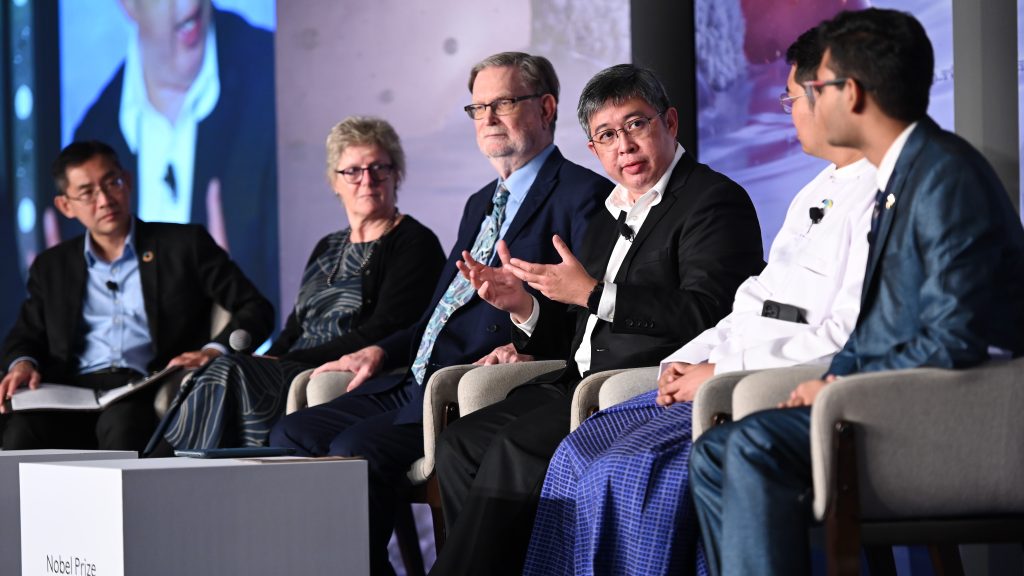
“Let us make our future now, and let us make our dreams tomorrow’s reality,” education activist and 2014 Nobel Peace Prize laureate, Malala Yousafzai once said. To make a brighter future was exactly what brought Nobel Prize laureates, international experts, and students from all over the world to the Nobel Prize Dialogue in Singapore on 13 September 2022.
The Nobel Prize Dialogue was organised by the Nobel Prize Outreach and NUS Yong Loo Lin School of Medicine, in partnership with the Asian Medical Students’ Association (AMSA), Singapore to provide a platform for inter-generational dialogues to discuss and generate ideas around topics pertinent to ongoing global crises that concern today’s youths and how they impact their future.
“We're bringing together Nobel Prize laureates, students and many speakers from all the Asia Pacific region to discuss how we envision wellbeing for us all and how we can improve your lives,” said Ms Laura Sprechmann, Chief Executive Officer for Nobel Prize Outreach AB, Sweden.
The full-day programme was packed with panel discussions addressing the theme, “The Future We Want Together”. While the Nobel Prize Outreach has held similar events in the Asia-Pacific region, this is the first Nobel Prize Dialogue held in Southeast Asia.
Guest-of-Honour at the dialogue, Minister for Foreign Affairs Dr Vivian Balakrishnan, said in his speech that the Nobel Prize Dialogue is “an opportunity to share ideas, learn from one another, discover our common humanity, to look for global solutions to global problems. Find new networks for collaboration and expand your minds.”
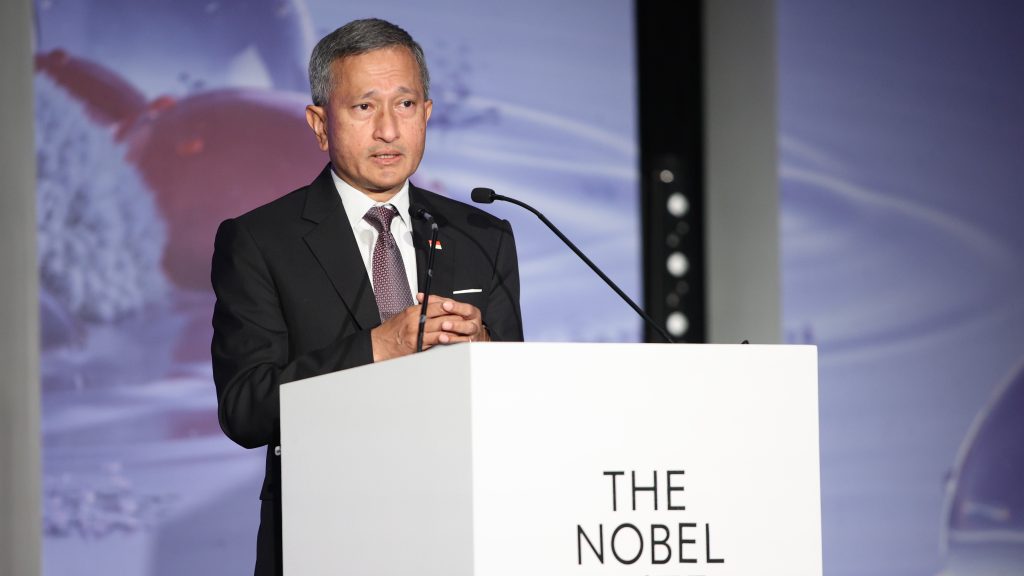
Ms Zhu Yiming, a second-year Medical student at the NUS Yong Loo Lin School of Medicine and President-Elect for AMSA, Singapore who delivered opening remarks at the dialogue expressed how this was an opportunity “to start a precedent where youths can have greater agency in driving our future with fresh perspectives.”
Projecting the Voices of the Youth
Professor Chong Yap Seng, Dean of the NUS Yong Loo Lin School of Medicine, shared in his opening speech how the youths of today are looking for a future that is “sustainable, where mental health and wellbeing are prioritised – a future that is full of possibilities.”
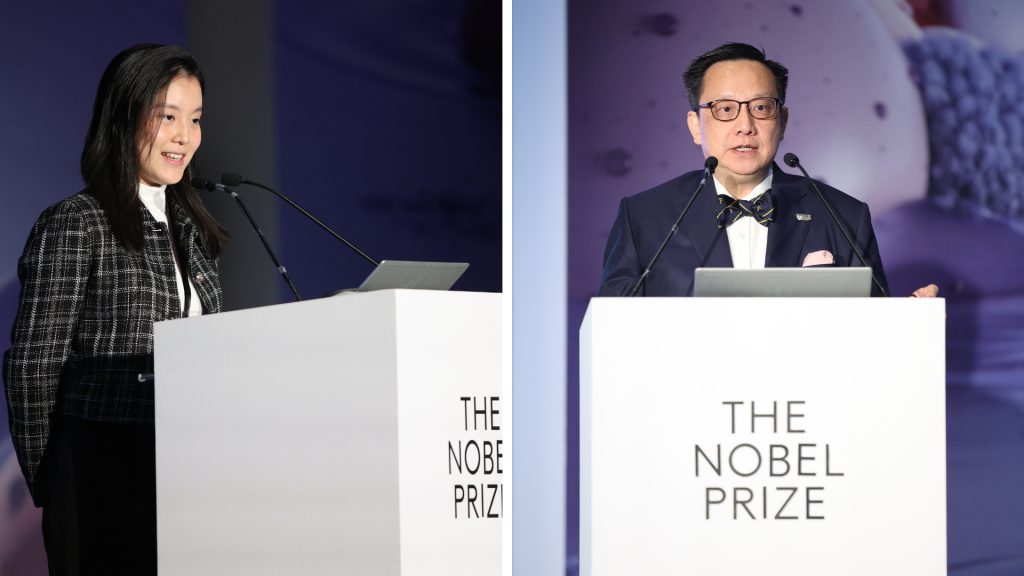
Climate change, health, education, happiness, as well as economic and digital wellbeing were some topics discussed during the panel sessions at the Nobel Prize Dialogue.
Virtual sessions were held prior to the dialogue where students got to interact and pose questions to Nobel Prize laureates as to what makes them apprehensive about their future. Contributing to these virtual sessions were Nobel Prize laureates, Professor Steve Chu (Physics, 1997), Professor Sir Angus Deaton (Economic Sciences, 2015), Professor Esther Duflo (Economic Sciences, 2019), Professor May-Britt Moser (Medicine, 2014), and Professor Paul Romer (Economic Sciences, 2018).
Questions posed by students during the virtual sessions were put forward for Nobel Prize laureates, international experts and students to engage in inter-generational discussions at the dialogue sessions held on 13 September.
In essence, of all the issues discussed, there was a concerted agreement across panellists that science and technical knowledge is not the only answer to the world’s crises; humanities and social science have a part to play in shaping a brighter future for the youth.
This was also in line with Dr Balakrishnan’s speech when he said, “It's a wonderful time to be alive. It's a time of great danger but also a time of accelerating opportunities. It is also a time in history where science, technology, politics, global affairs, and humanity are all telescoping into a focal point – with great and grave opportunities.”
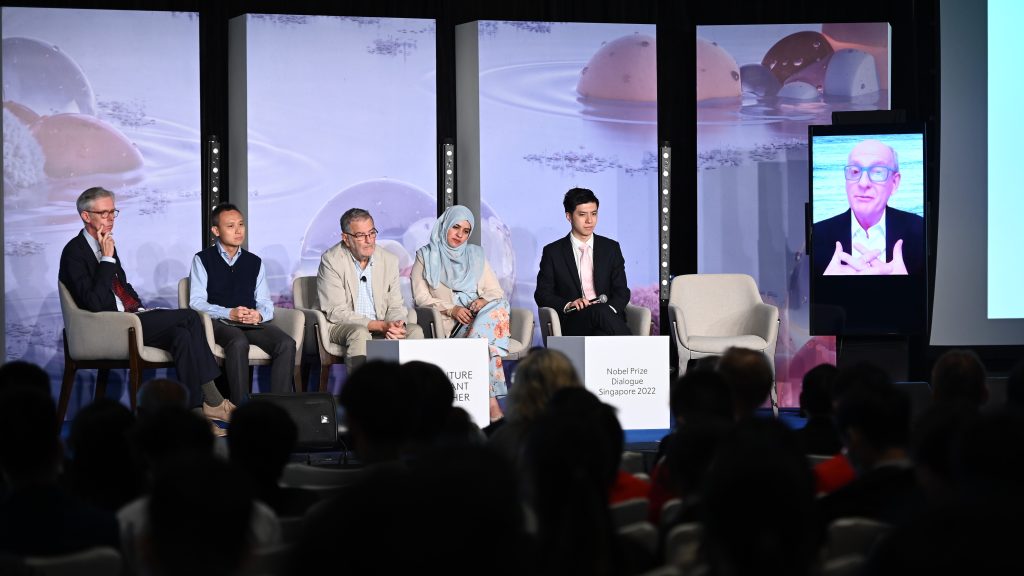
Extracting an example of artificial intelligence (AI) implementation during the dialogue about digital wellbeing, Assistant Professor Reuben Ng from the NUS Lee Kuan Yew School of Public Policy and Lead Scientist at the Lloyd’s Register Foundation Institute for the Public Understanding of Risk highlighted that, “when we are trying to implement AI we can’t just look at the science of AI, we need to look at the art of AI as well.”
The final panel discussion in the afternoon session covered a topic closer to the heart, the “Pursuit of Happiness”. Panellists engaged in a broad discussion on achieving the meaning of happiness in our current society. Providing a youth perspective was Ms Emma Goh, a sophomore studying psychology at the NUS Faculty of Arts and Social Sciences. She believes that “happiness can be simple,” and happiness can be found in something that “gives you a permanent sense of meaning.” For Ms Goh, it’s her family.
Creating the Future We Want
“When we're talking about what future we want, we're talking about a system that's ongoing that we're going to have to encourage and divert and push towards the direction that will give us the future we want,” said Professor George Fitzgerald Smoot III, an astrophysicist and cosmologist who was co-awarded the Nobel Prize in Physics in 2006. He was one of the three Nobel Prize laureates who participated on-site at the dialogue.
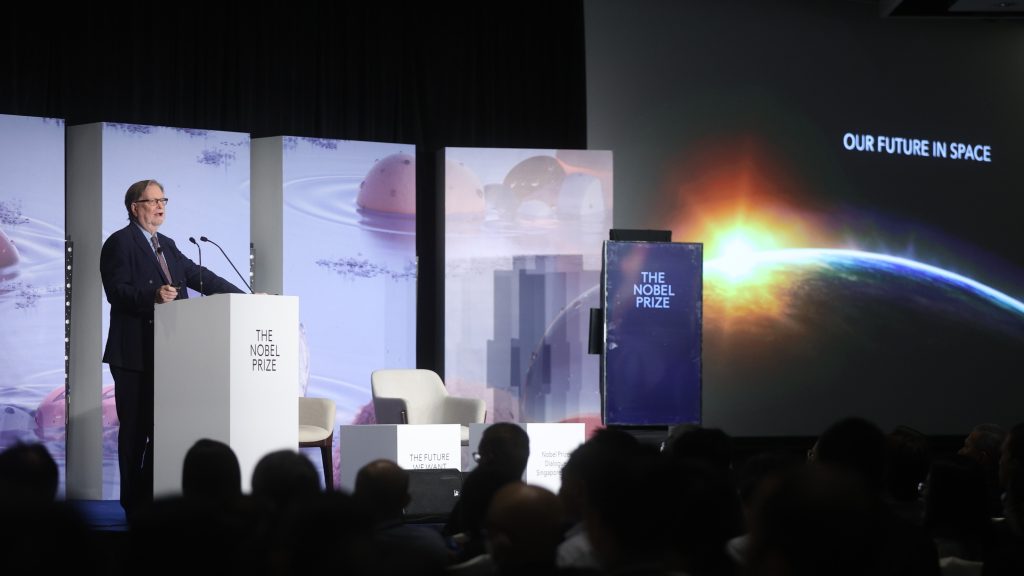
Solidarity, advocacy, and global collaboration were propounded as possible solutions to the topics discussed during the dialogues that could help shine a glimmer of hope for the kind of future that the youth of today envision and aspire to achieve.
Rallying the youth in the audience, Nobel Peace Prize laureate (2014) and advocate for children’s rights, Kailash Satyarthi said, “Speak. No words can be louder and more compelling and honest than the words of young people.” He called upon the youth to “speak for those who have no voice and to be the face of those who are invisible.”
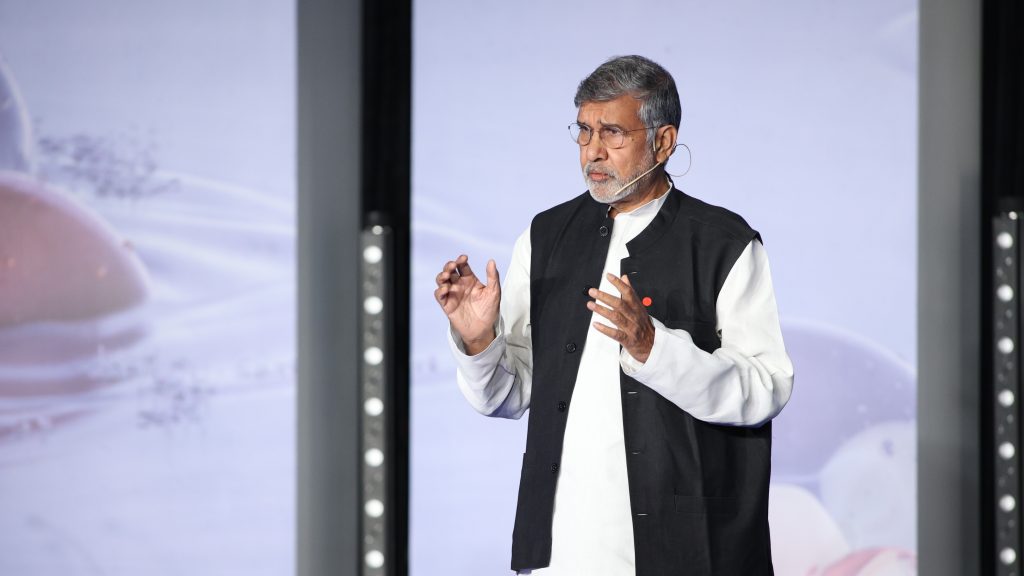
Speakers urged the youth in the audience to do their part with their resources in technology and seize the opportunities to be the voice of their generation and face the challenges of building a brighter future.
“As temporary stewards of the world today, you're always merely looking after the next generation. The youths of today must be prepared to take on the challenges of tomorrow,” said Prof Chong.
“The world holds endless opportunities and I hope that every one of us can find our inspiration to contribute to the voice of the youths on the national and international stage,” said Ms Zhu.
This story first appeared in NUSNews on 21 September 2022.

